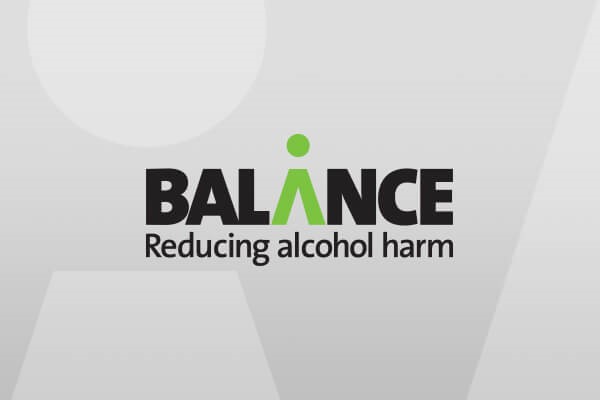Did Guy Opperman MP stay dry for January?
Free-marketeer, former jockey and barrister of 20 years, Guy Opperman MP, discusses his support for minimum unit price, talks with Tesco over the promotion of cut price alcohol and the personal impact of taking part in Dry January.
This idea of a heavy drinking culture among MPs was seemingly backed up by an Alcohol Concern poll which stated that over a quarter of MPs thought their colleagues drank too much
However, not everyone feels the story paints a familiar picture. One such person is Guy Opperman, MP for Hexham.
Not witnessing his colleagues regularly a little worse for wear is one thing, but being tee-total for the full 31 days of January? Well it seems that’s just another, as Balance, the North East Alcohol Office, discovered when we tracked his abstinence progress throughout Dry January.
Mr. Opperman said: “I decided to take part in Dry January because I felt that it was a good idea for my health and seemed sensible, having not had a break from alcohol for a couple of years. I was also keen to lose some weight and my doctor friend and fellow MP, Sarah Woollaston, tells me not to drink my calories – alcohol is basically all sugar after all!
“I’ve managed to abstain from drinking in the past, once after a serious operation in 2011, and for a time when I was an amateur jockey. The jockey’s lifestyle doesn’t allow for much of a social life – you eat very little, go to bed early and get up early to train – and it’s hard to stay around two stone under-weight and consume much of anything, let alone alcohol.
“The life of an MP is different of course and there are many situations where alcohol features. But I haven’t experienced the culture many people think exists; I’m not at social events surrounded by champagne and scotch every night and, in my experience, the culture has changed with the rest of society’s – most of us go home to our families every night, not the pub. Usually I’ll just have a couple of drinks during the week and some wine at weekends.
“I had no breaks, falls or submissions but it was difficult when I went out – I experienced some functions where no soft drinks were available. There is a degree of the job that is very social, and, more often than not, alcohol is part of this. Plus I’m an ardent supporter of the local breweries in my constituency who make amazing beer and I missed a good pint of bitter!
“Without over-dramatising it, alcohol is addictive and has become very much an intrinsic part of many social situations. My friends have been very supportive and proud of what I’ve achieved, but I’d have been very upset if the rugby had started before the end of January – I always have a pint when watching it, doing so without one would be very difficult.
“Drinking alcohol in certain situations is a way of life, a habit, but one that is very beneficial to break. I’ve lost ten pounds through stopping drinking and going to the gym, and slept and felt much better.
“I spent years working as a prosecutor and have seen the damaging effects of alcohol misuse and abuse on our police forces and the communities they protect. I’ve also seen the impact drinking has on our NHS and the extra pressure this puts on our hospitals.”
“Balance’s figures tell me that the cost of the impact of alcohol in the North East now stands at an estimated £1.1bn each year. In 2011/12, alcohol-related crime and licensing cost £296.31m, with an estimated 208,853 recorded alcohol-related crimes in the region, and alcohol misuse cost the NHS £264.97m.
“As a result, I’m a strong supporter of policies to alleviate the problems caused by alcohol abuse. A minimum unit price would restrict consumption by the most vulnerable groups and it is the responsibility of society to look after those who struggle to look after themselves.
"I’m a Conservative, free-market favouring politician, but I accept that this is an area in which the state needs to intervene. It’s not right when the most vulnerable people in our society can buy alcohol cheaper than bottled water and, as an MP, I consider it my duty to fight for this change.
“My constituency, Hexham, doesn’t have a particular problem with alcohol and relatively limited experience of liver damage, but I’m more than aware of the impact on the wider North East region. There are huge impacts on young people living nearby, with the North East having the highest proportion of young people receiving alcohol treatment services, and this is part of the reason I’m behind a minimum unit price.
“There is, of course, a role for personal choice, but I think the state needs to do more. I’m ok with people drinking in moderation, it’s the abuse of alcohol I find worrying and that causes problems. I’m talking to my local Tesco about their low cost deals, which encourage irresponsible drinking, and I think the state needs to intervene over price – alcohol is not something we should make totally illegal, but we should try harder to control its misuse.
“Like many people from my constituency and the wider North East region I will probably drink less after taking part in Dry January. I imagine I’ll have further periods of abstinence, maybe during Lent and very probably again next January. I didn’t struggle with this at all after the first few days. I hope it’s had the same impact on the thousands of North Easterners Balance tells me have taken part in the campaign.”
